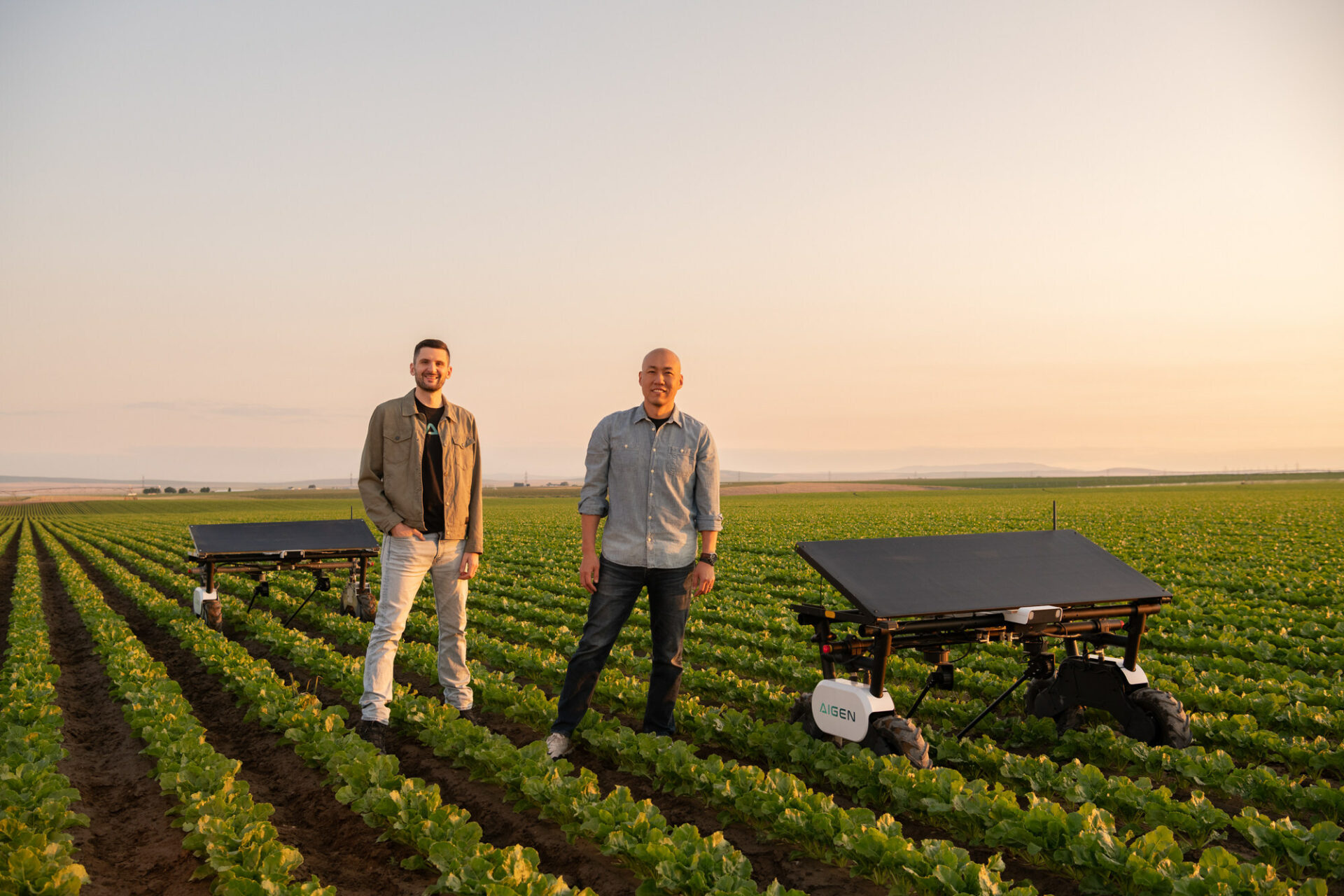Disclosure: AgFunderNews’ parent company, AgFunder, is an investor in Aigen.
- US-based Aigen Robotics has raised a $12 million Series A for its solar-powered, autonomous robots for agriculture.
- Australia VC ReGen Ventures led the round with participation from New Enterprise Associates, Cleveland Ave, Incite, and Susquehanna Private Equity Investments.
- Aigen will use the funding to scale its robotic fleet for a wide launch in the US in 2024.

“It was always part of our vision to not use fossil fuels as part of the energy source during the operation of the robot,” Aigen cofounder Kenny Lee tells AgFunderNews.
To avoid fossil fuels, Aigen has developed a solar-powered robotics platform equipped with sensors, cameras and software that monitors and manages plants in the field.
Its fleet will autonomously navigate the field, removing weeds via blades at the end of the robotic arms and deploying “advanced ML [machine learning] for precision strikes,” says Lee. Solar panels double as “sails,” helping the robot take advantage of any high winds on the farm.
Simultaneously, the robots analyzes the crops and provides farmers with data to assist growers in plant management decisions.
“We’re the really the first ag robotics that I’ve seen that relies on solar as the primary energy source,” says Lee. “That’s what gets our customers really excited. The robot can sleep on the farm and wake up on the farm without having to call home, or [needing] someone constantly going out and refueling the robot. Thinking about thousands of acres of land, that is a huge impact.”
Dream team
Aigen’s founders are quick to point out that the team is central to the company’s success so far.
“Because we are a mission driven company, where we want to not only help the farmers but help the planet, we’re able to attract some of the best talent,” says Lee. He notes that Aigen has so far hired engineers from SpaceX, Amazon Robotics and other high-profile firms.
“Today, we have a great team working on the cutting edge of AI, robotics, electric motors, and solar power,” adds Aigen cofounder and CTO Rich Wurden. “Thanks to technological advances in all those areas and the incredible work of our team, we are automating farming solutions that have worked for thousands of years and helping farmers get chemicals off their farms and out of our food.”
He adds that just a few years ago, Aigen “would not have been possible” because the technology “wasn’t there.”
Expanding the impact
Aigen, which raised a $4 million seed round last year, has been testing its robots with customers in North Dakota throughout the growing season in 2023, according to Lee.
For now, the company is focused on sugar beets, where weed management can be especially difficult. The problem is compounded by a rise in herbicide-resistant weeds in the Red River Valley Region, where Aigen works.
All of this makes the area ripe for a new form of weed management that can alleviate, if not outright eliminate, the need for chemical herbicides.
To meet the growing demand, Aigen is currently building a 7,500 sq ft manufacturing and R&D facility to manufacture its fleet. Reports from earlier this year note that 2024 and 2025 pre-orders for Aigen’s Element robot sold out in one day.
The facility will be able to manufacture 3,000 robots per year, says Lee. Aigen will move into the new location by January.
In 2024, Aigen plans to debut its Element robotics service on more than 20,000 acres of US farmland beginning in April 2024 to assist farmers with weed control and farming insights.




